-
Car Reviews
- All reviews
- Midsize SUVs
- Small cars
- Utes
- Small SUVs
- Large SUVs
- Large cars
- Sports SUVs
- Sports cars
- Vans
Latest reviews
- Car News
-
Car Comparisons
Latest comparisons
- Chasing Deals
Yet another facelift for the eight-year-old i30 hatch, bringing greater fuel efficiency, a frisky chassis, refreshed styling and updated tech
Aussies have had plenty of affection for the Hyundai i30 hatch since the moment it launched in 2007. Over the past 17 years, it has regularly duked it out with the Toyota Corolla and Mazda 3 for the title of best-selling small car, and while the Hyundai has never managed a win, it has always featured strongly and consistently.
That situation appears likely to change in 2025 – firstly because small hatches are no longer the darling of Australian car buyers, and secondly because this updated and Euro-built MY25 i30 MHEV hatch arrives with quite a different focus.
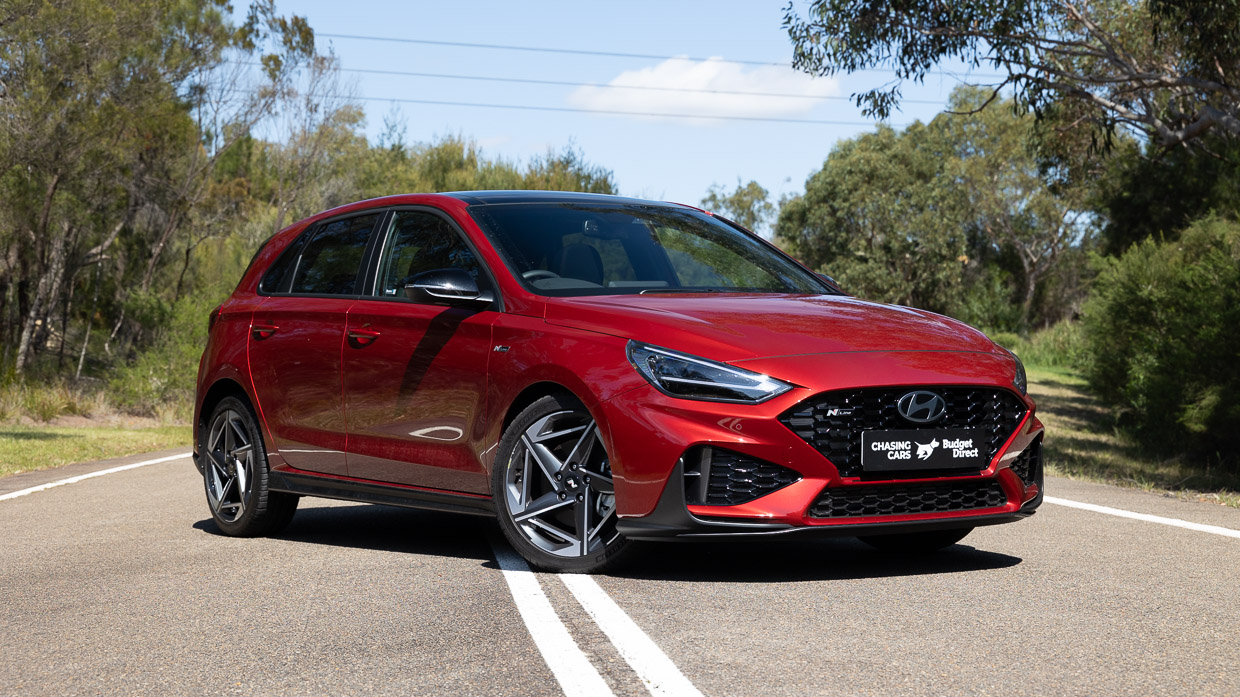
Hyundai Australia sees mainstream buyers trending towards its Kona small SUV over a small hatch, so is presenting the 2025 i30 hatch as more of a sporting, enthusiast-focused variant.
Gone are the base, Active and Elite variants – all victims of Hyundai’s Ulsan plant in South Korea ceasing to build any i30 hatchbacks. Instead, our facelifted MY25 i30 hatches are now sourced from the same European plant (in Czechia) that was already producing the i30 N hot-hatch.
And now we’ll be getting just one sub-N variant – the warm-ish i30 N-Line, in two trim levels.
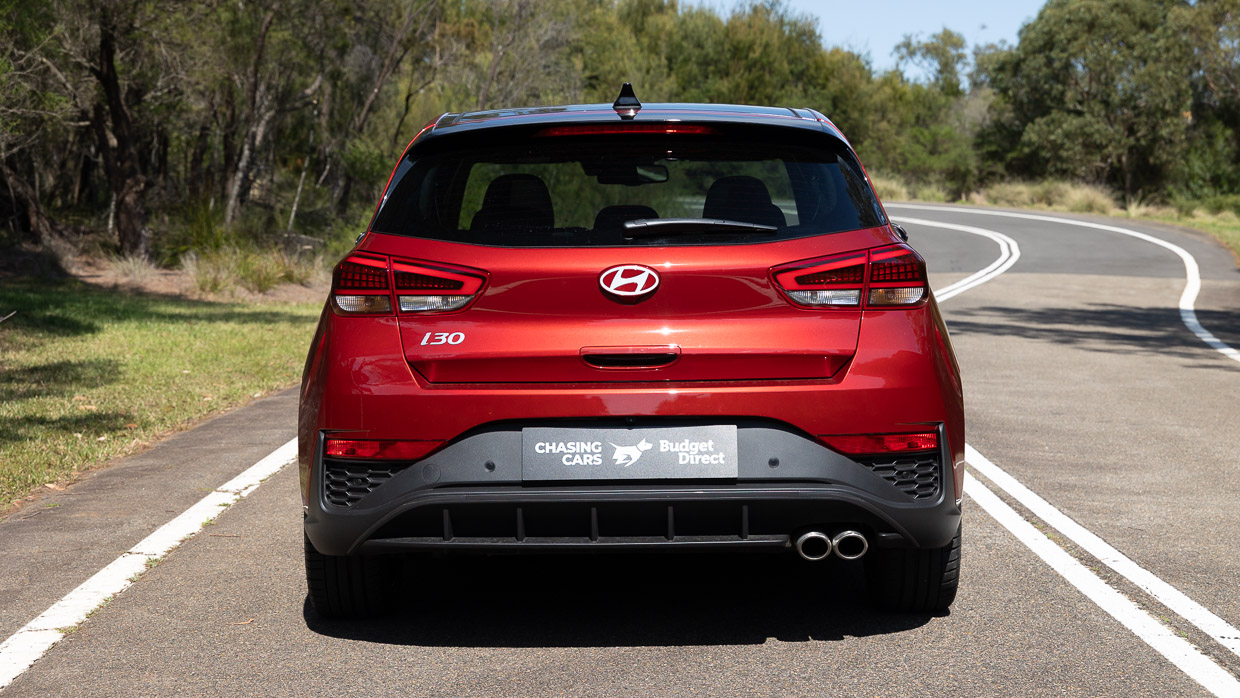
Directly replacing the previous i30 N-Line, the MY25 version sees a raft of subtle, yet wide-ranging updates that freshen its look, improve its efficiency and enhance its technology – preparing this now eight-year-old design for the latter half of the 2020s.
But is the MY25 i30 N-Line hatch sophisticated enough to command a starting price of $36,000, while stretching to $41,000 (before on-road costs) for the N-Line Premium version?
That elevated $36K entry ticket compares to the Korean-built MY23 i30 hatch’s starting price of $26K for an automatic (or $24K for a manual), while the previous N-Line hatch started at $30,500 for a six-speed manual, rising to $37,300 for an N-Line Premium dual-clutch auto.
Aside from its new front grille, new-generation Hyundai logos, classy new LED lighting designs, restyled front and rear bumpers, new side skirts, interesting new colours, and handsome blade-shaped 18-inch alloys.
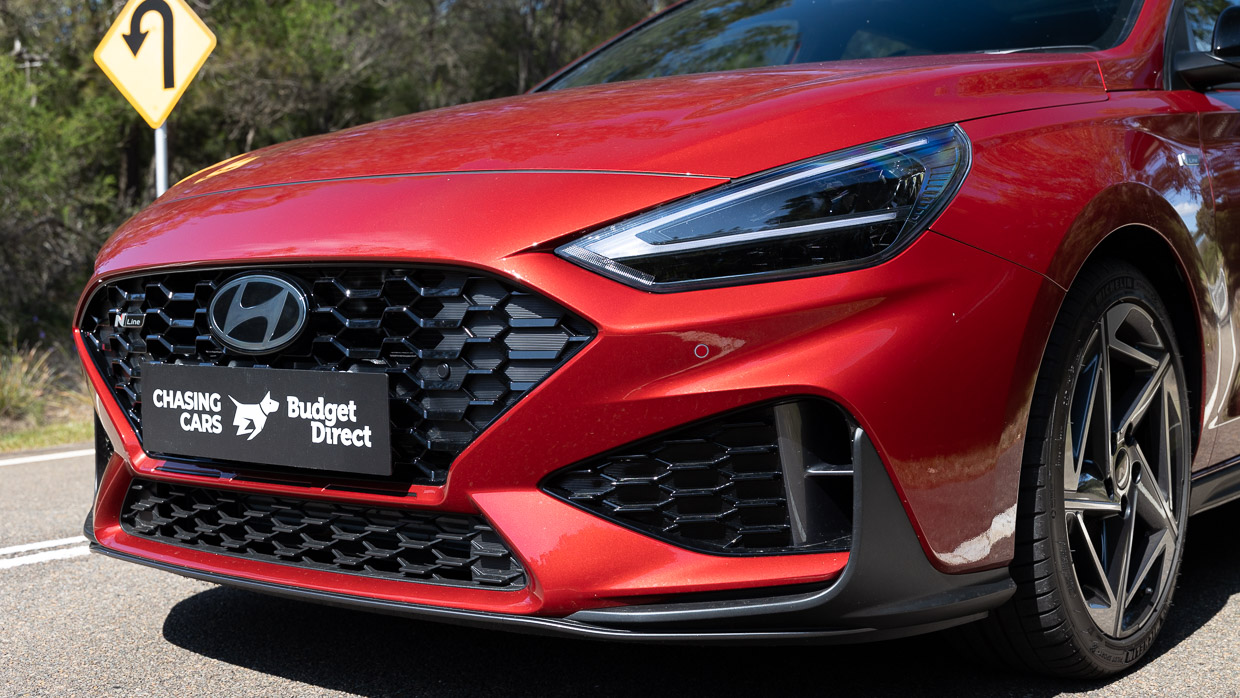
But the biggest change for the MY25 N-Line is its Euro-spec drivetrain – a mild-hybrid 1.5-litre turbo-petrol four-cylinder that meets Euro 6d emissions and is claimed to be 20 percent more fuel efficient.
That said, the MY25 i30 N-Line features plenty of equipment highlights, including:
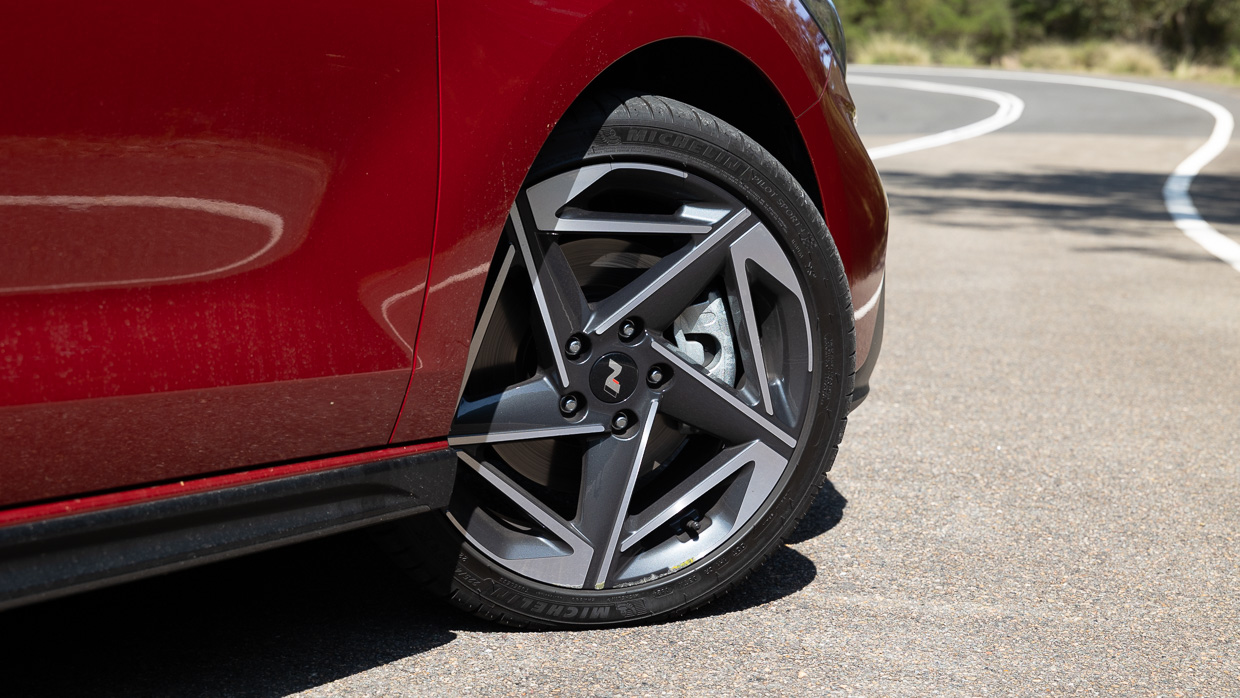
For an extra $5000, the N-Line Premium adds:
Clearly inspired by its i30 N hot-hatch big brother, the MY25 i30 N-Line’s suspension tune and dynamic focus are aimed at enthusiast drivers.
Wearing high-quality 225/40ZR18 Michelin Pilot Sport 4 tyres, the N-Line hatch offers a similarly premium level of agility that positions this new MY25 version as a pukka warm-to-hot hatch.
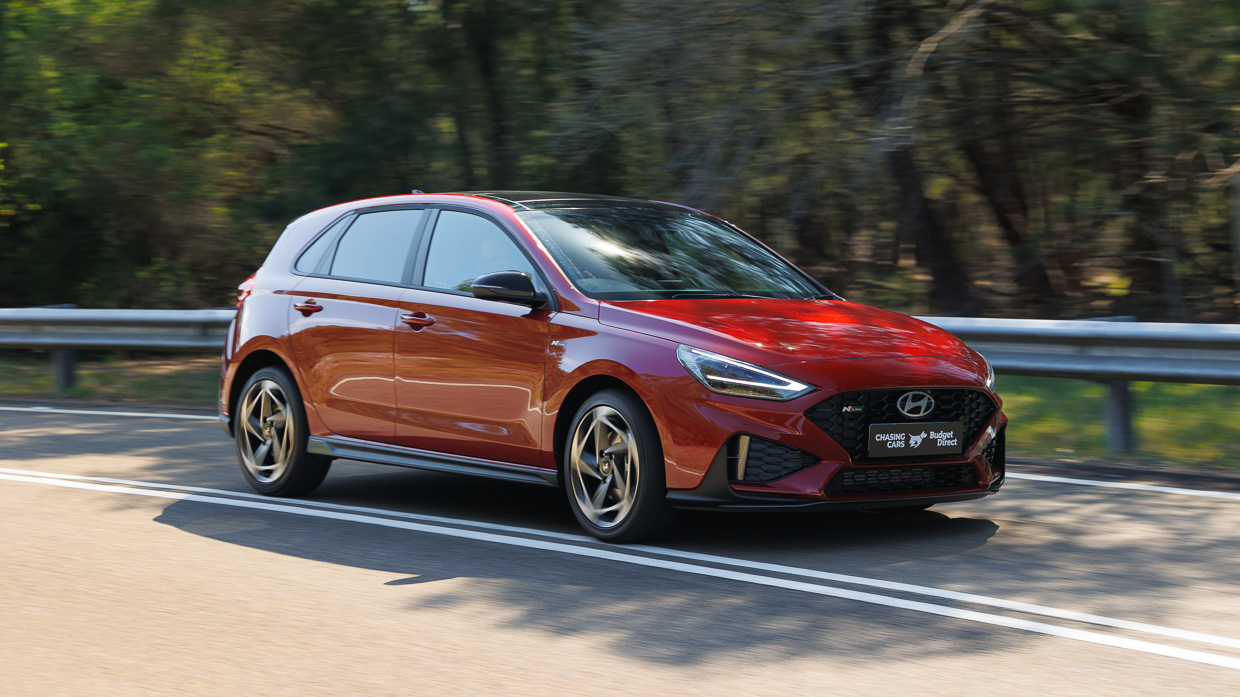
It turns in sharply, hangs on effortlessly, and is impressively neutral when cornered hard, yet offers plenty of rear-end adjustability (via multi-link independent rear suspension) to keep it pointed where you want it to go.
Aside from the lack of a limited-slip diff, it delivers true hot-hatch rivalling dynamics, including impressively weighted and communicative steering (with 2.4 turns lock-to-lock), strong and feelsome brakes, and tight body control via firmly disciplined ride quality.
Where the MY25 N-Line starts to veer away from this baby-N dynamic focus is via what’s under its bonnet – a new mild-hybrid 1.5-litre turbo-petrol four-cylinder engine, tied exclusively to a seven-speed dual-clutch transmission, that betrays the European-market focus of this Czech-built hatch.
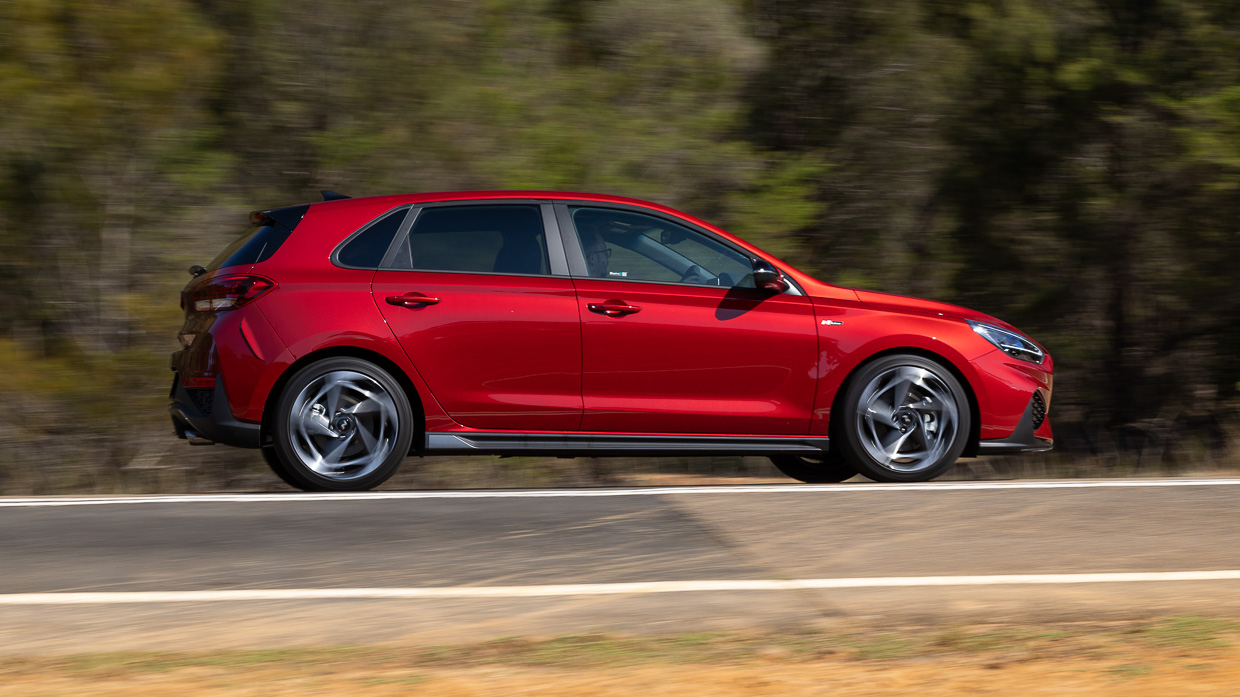
Tuned to run on regular unleaded or E10, this efficient new 1.5 turbo is more of a direct replacement for the old 120kW/203Nm direct-injection 2.0-litre, rather than the previous N-Line’s 150kW/265Nm 1.6-litre turbo-petrol four.
Producing 117kW at 5500rpm and a solid 253Nm from 1500-3500rpm, it makes up for its lack of outright thrust by being extremely driveable and eminently likeable.
It’s tightly geared in its lower three ratios, giving it plenty of punch off the line – the 0-100km/h claim is 8.6sec, though we recorded 7.77sec.
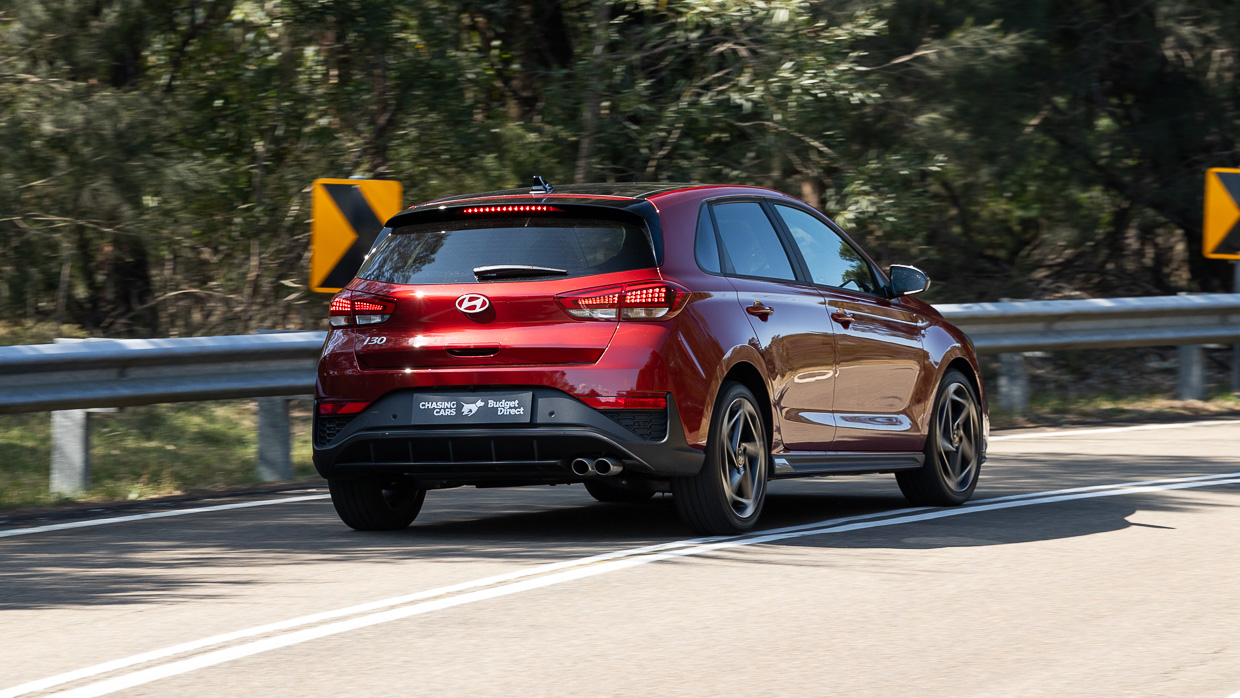
It also has a subtly tuned induction sound that is probably synthetic, but seems pleasantly sporty.
Only at speeds well into three figures (and fourth gear) does the new N-Line feel like a 117kW 1.5, though the byproduct here is significantly improved fuel efficiency (see ‘ownership costs’).
For the most part, its idle-stop system works well, too – engaging seamlessly and with little delay – though its dual-clutch ’box, while significantly slicker than the old six-speed DCT used by the 1.6 turbo at launch, still requires a degree of familiarity to get the best from.
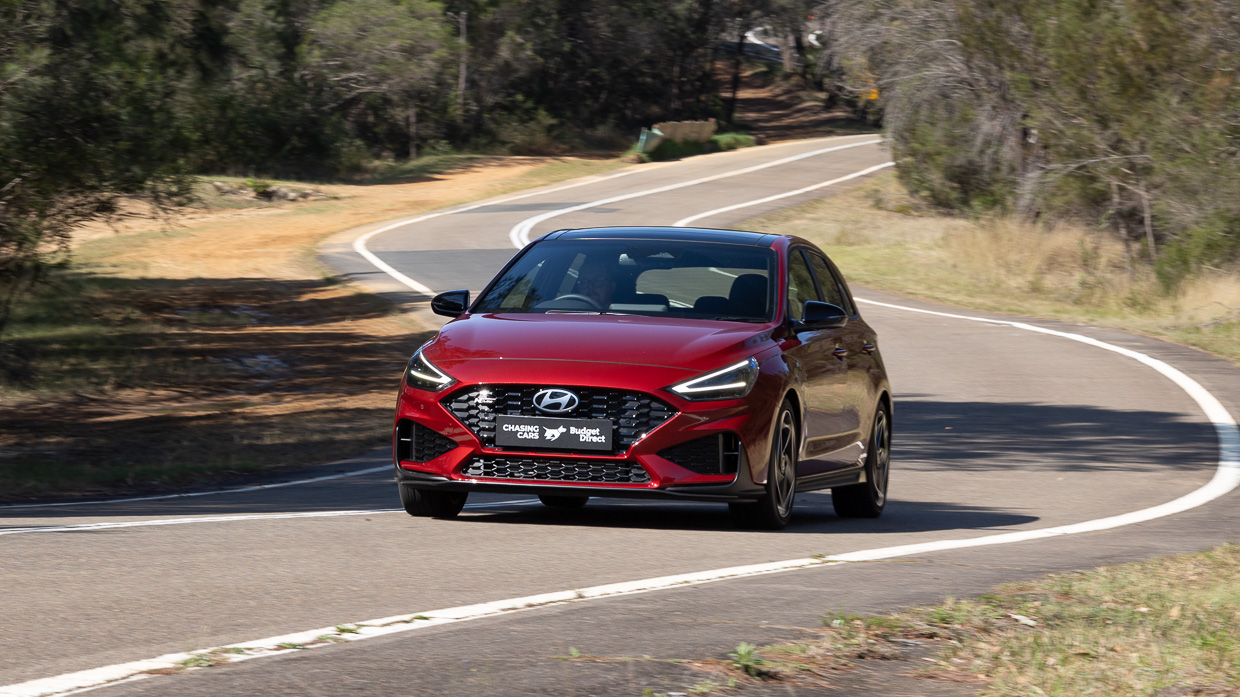
The N-Line defaults to an Eco drive-mode every time the cars starts, meaning full ignition-cut ‘coasting’ when off the throttle at speed (to save fuel), but also fairly conservative throttle tuning.
At times, it feels too doughy, though a quick button-press to ‘Normal’ instantly wakes the drivetrain up. And there’s always Sport for those roads where the N-Line’s chassis shines.
The best thing about the MY25 i30 N-Line’s interior is that it isn’t from 2025 at all – it dates back to 2016 when the PD i30 generation appeared, and for that we can only be thankful!
What this means is physical switches, simple and clearly marked controls, and digital screens only where necessary (that is, the multimedia touchscreen with a separate row of switches at the bottom, as well as a large volume knob, and a new 10.25-inch full-digital instrument pack).
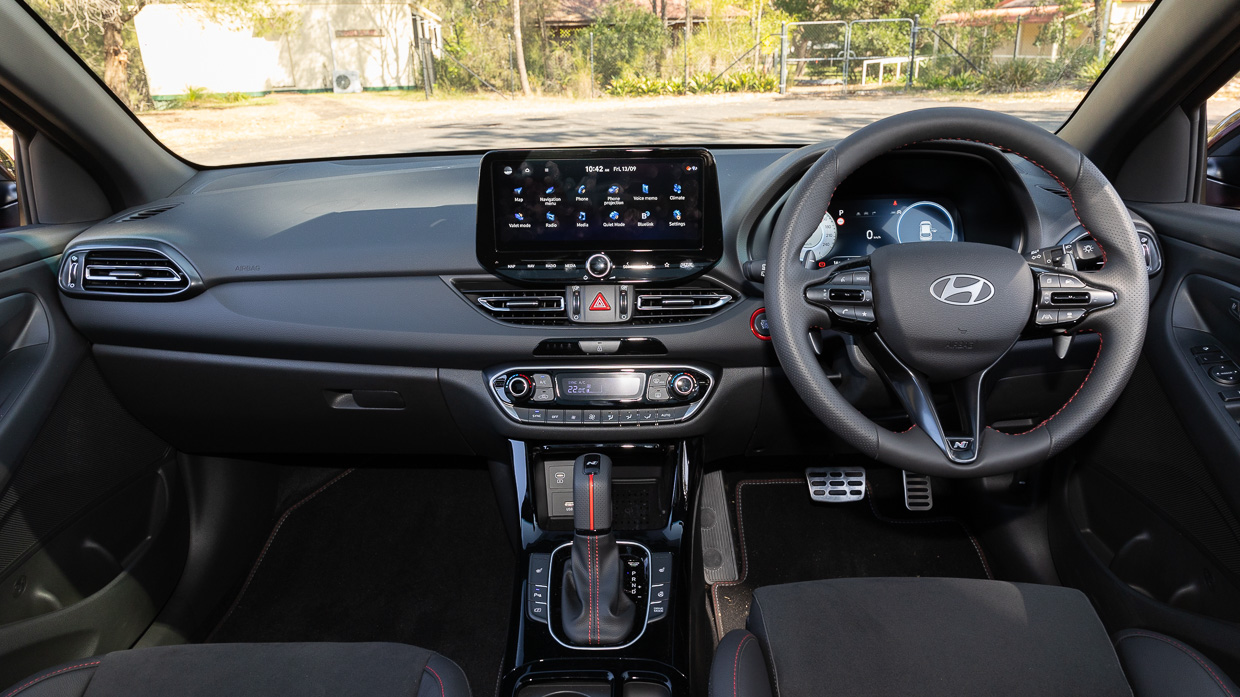
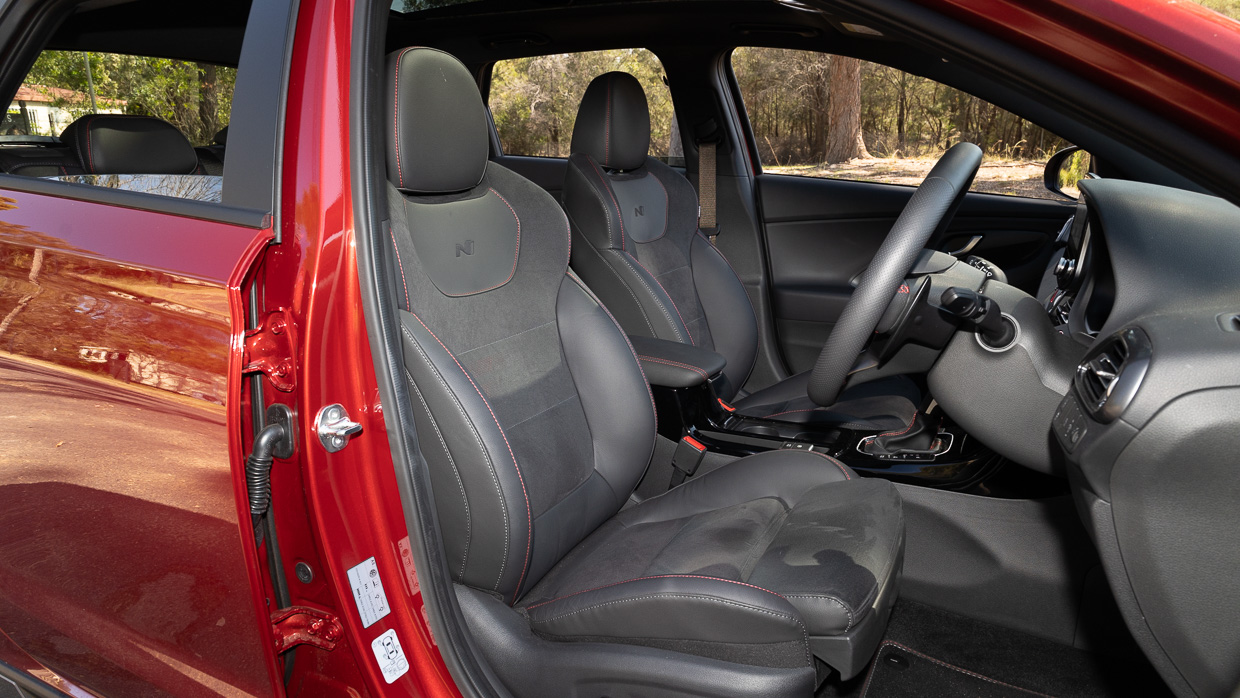
Where the facelifted i30 hatch maintains a degree of timelessness is in nailing the details. While the new soft-paint finish on the dashboard plastic lifts the ambience nicely, it’s the N-Line’s plethora of subtly deployed red highlighting that makes it feel like it’s worth $40K-plus.
And in the case of our N-Line Premium test car, you can add the classy slickness of its larger 10.25-inch touchscreen and the glassy airiness of its huge sunroof (with electric sunblind).
Both front seats offer excellent support, the upholstery looks and feels premium (though there’s no front seat cooling), and even the door storage is decent enough to house camping bottles and such.
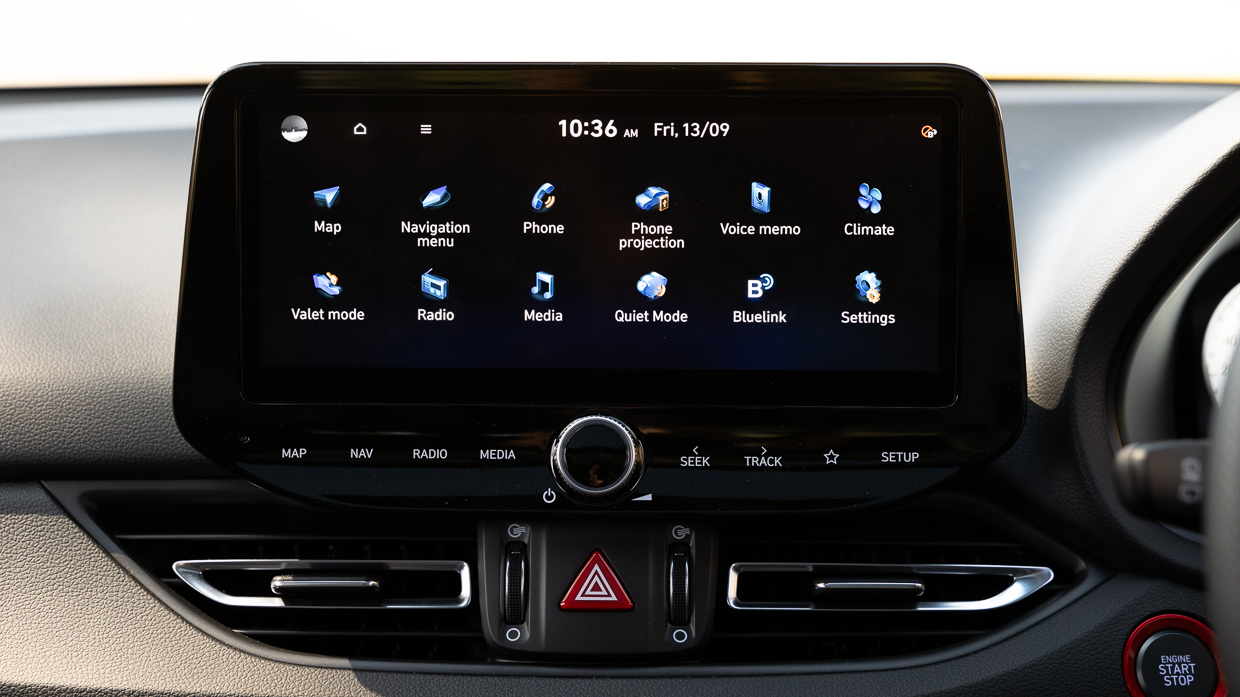
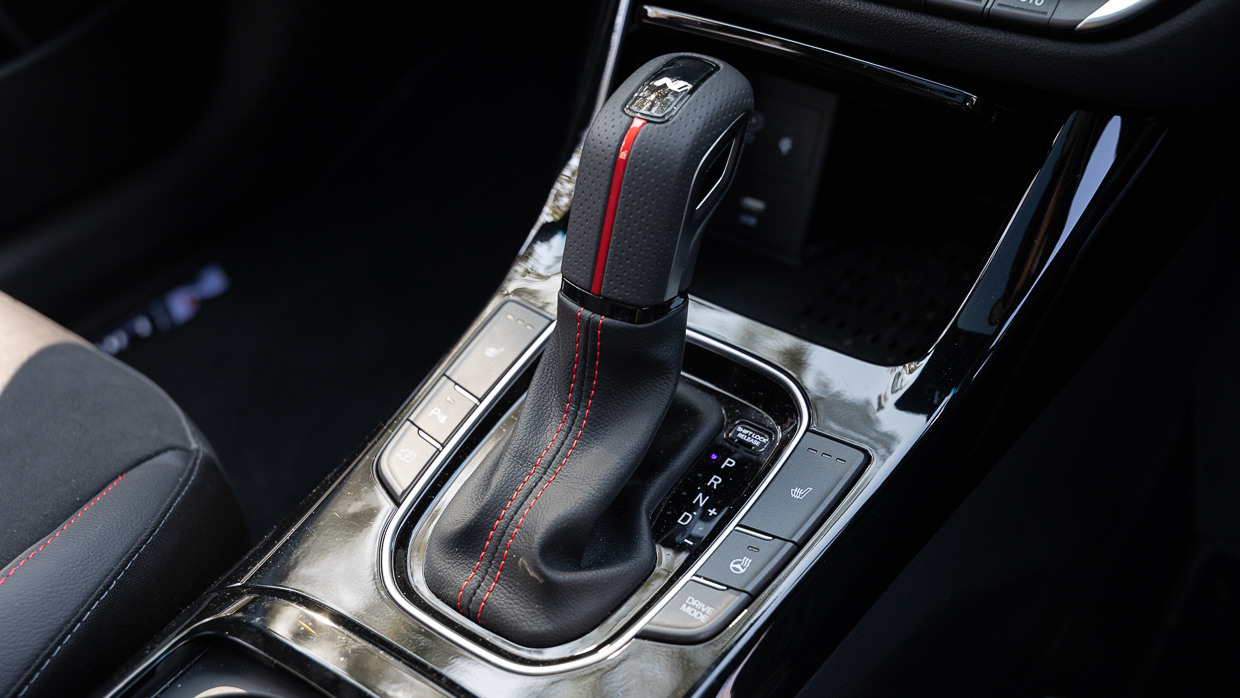
There’s also a wireless charging pad ahead of the gearlever (though no wireless phone connectivity), a new sliding centre-console armrest, updated USB-C charging ports and surprisingly decent sound quality from the six-speaker stereo.
The rear seat misses out on the front row’s useable door storage and sizeable legroom, though the bench is well-shaped and pretty comfortable. And while the overall space isn’t large, the i30 hatch can still seat four adults for reasonable distances – enhanced by the Premium’s vast sunroof.
As for the boot area, its 395-litre capacity is impressively voluminous for a small hatch … with a large caveat. There’s no spare wheel in this Euro-built i30; merely an inflation kit.
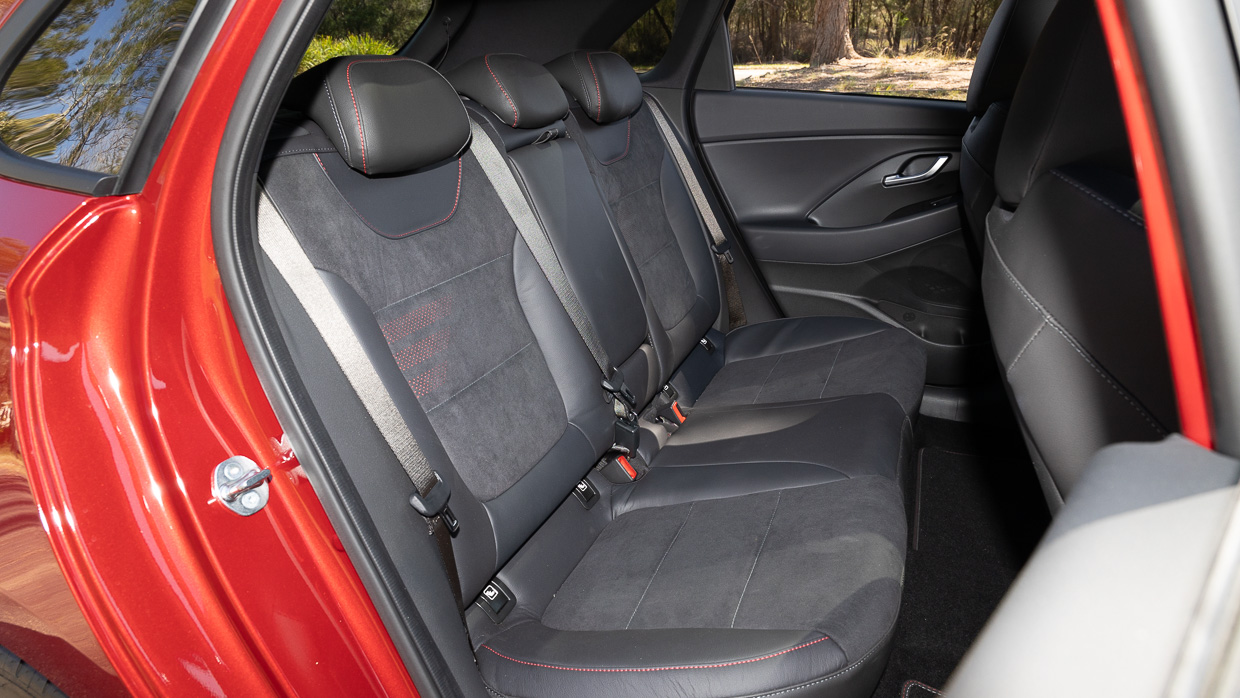
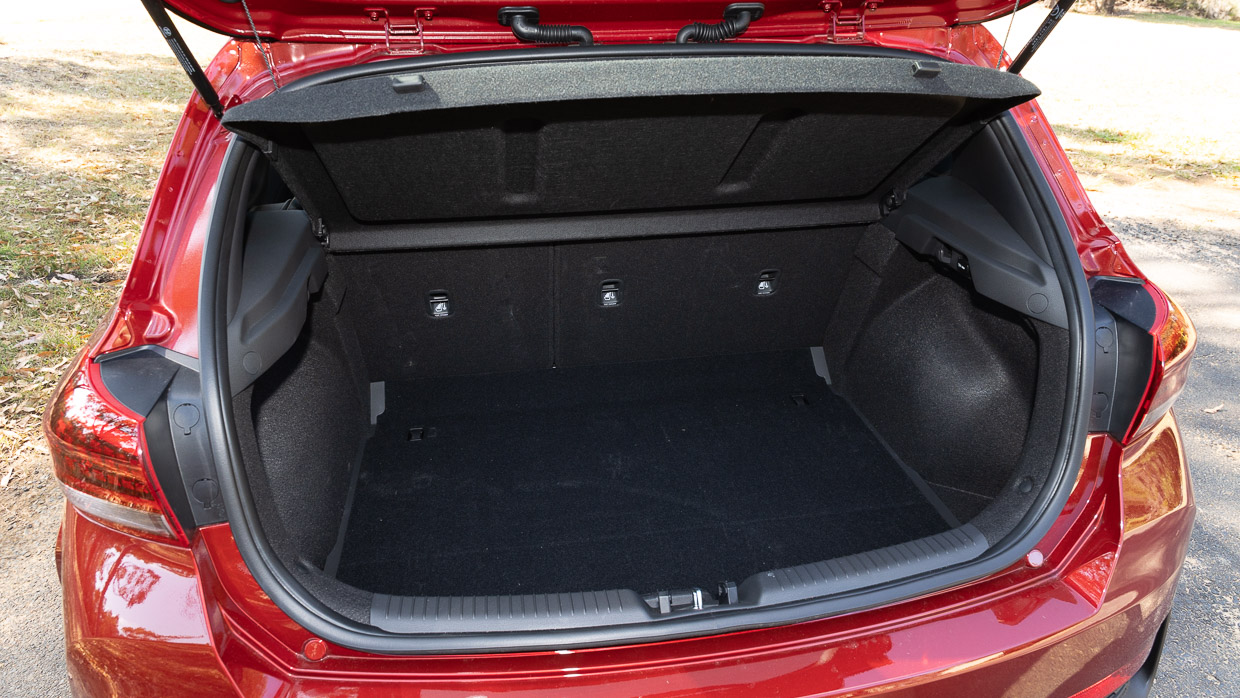
While that delivers all that space, plus a dual-level floor height and a new 12-volt power outlet back there, some buyers may prefer the peace of mind of a spare wheel … which the Kona sort of delivers (with a space-saver in the equivalent Premium).
The third-generation i30 hatch (PD) was revealed in 2016 and launched in Australia in October 2017, with a five-star crash-test rating awarded by the ANCAP safety authority. And while that rating will soon reach its expiry date, Hyundai’s latest round of MY25 active-safety additions to the i30 hatch have definitely kept it fresh in terms of safety tech.
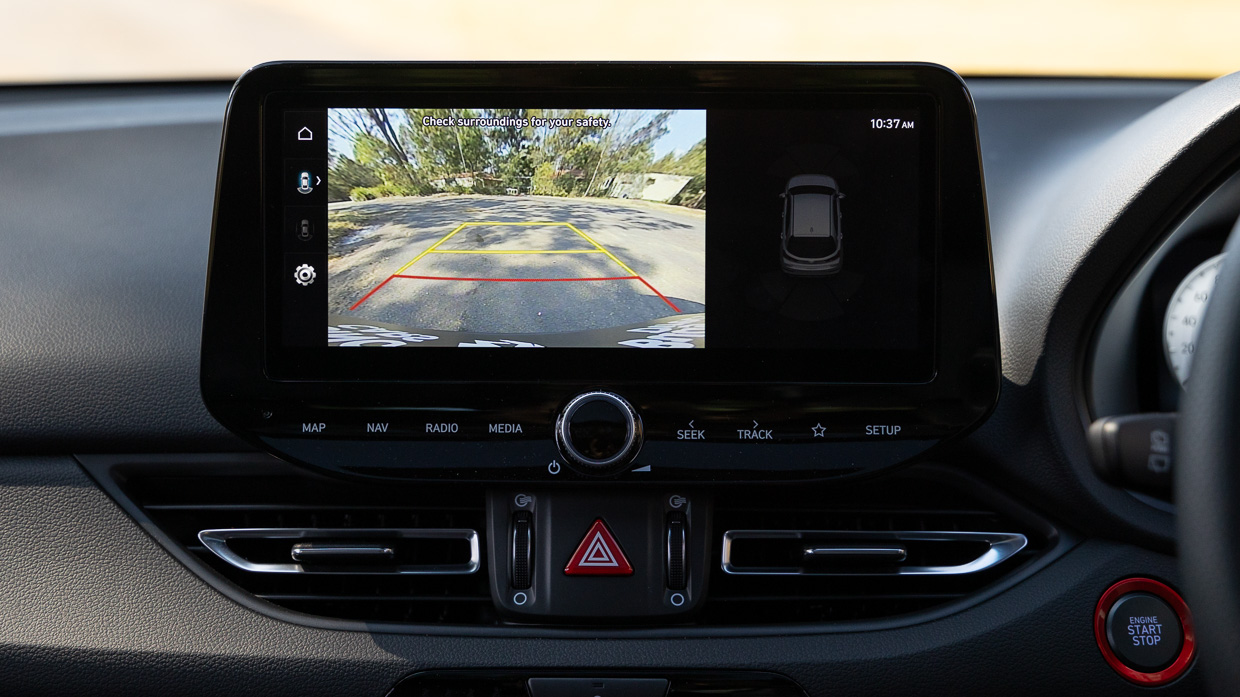
New or updated active-safety features for 2025 include:
Additional safety features for the Premium version include:
In our testing, the i30 hatch’s lane-keep assistance proved a bit too insistent, and not entirely smooth or perceptive, though it’s easy to disable via holding down a button on the steering wheel.
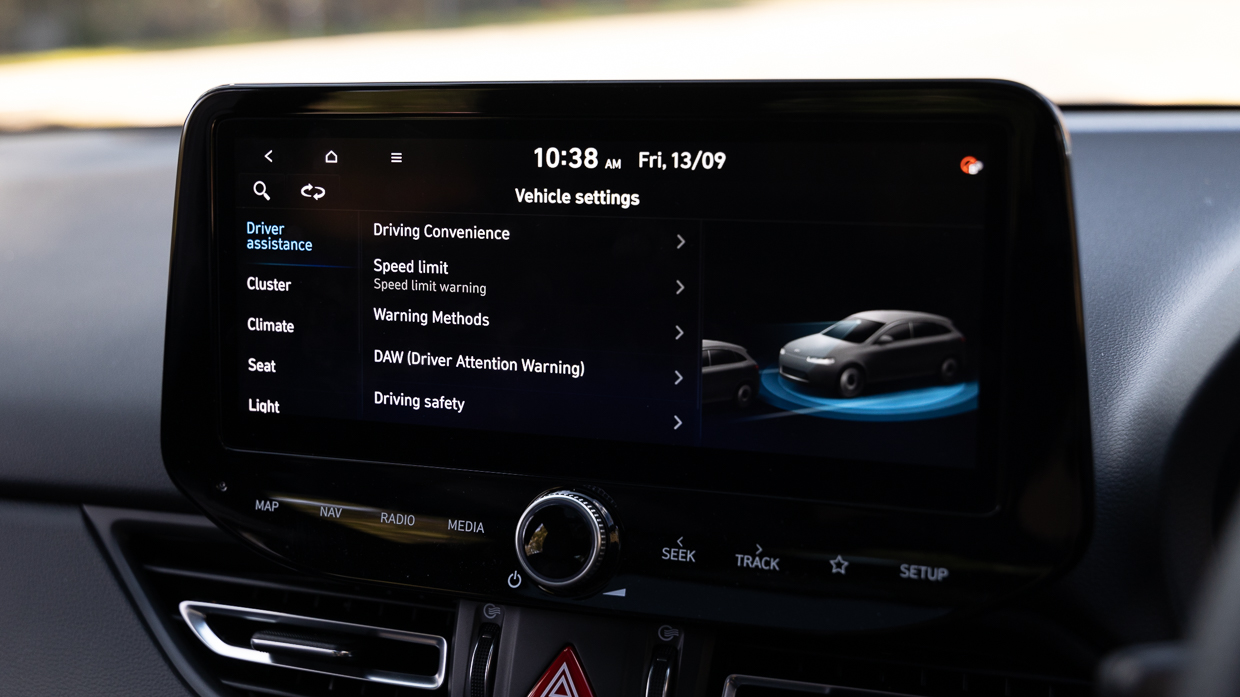
Once a shortcut is set up, the irritating speed-limit warning can also be disabled in a three-step process.
As for the adaptive cruise control, it mostly works well and is reasonably proficient at maintaining the set speed.
The MY25 i30 N-Line’s official combined fuel consumption figure is 5.6L/100km, with an urban number of 6.6L/100km and an extra-urban number of 5.0L/100km. Drinking from a 50-litre tank, the combined consumption number translates to a potential range of 893km.
In our testing, we saw highway consumption as low as 5.9L/100km, though an overall average of 7.2L/100km across nearly 1000km of enthusiastic testing in hugely varied conditions.
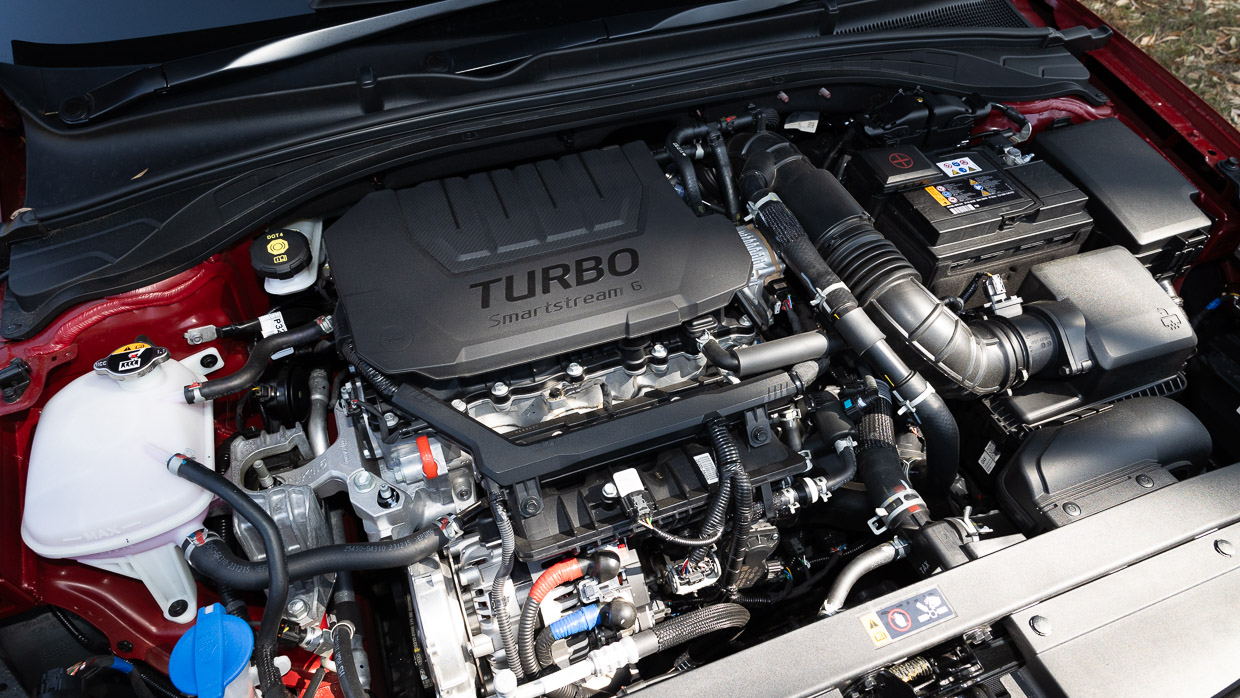
The mild-hybrid 1.5-litre turbo is capable of drinking regular 91-octane unleaded, as well as E10, which enhances its cost-of-ownership credentials.
Recommended service intervals for the i30 N-Line are every 12 months or 10,000km, with its capped-price servicing cost over five years/60,000km totalling $1795.
In comparison, a Toyota Corolla ZR Hybrid hatch’s five-year servicing cost (over a longer 75,000km distance) is capped at $245 for each service, meaning just $1225 in total. A Honda Civic Hybrid drops that five-year servicing cost below $1000, though its initial purchase price is substantially more than an i30 N-Line’s.
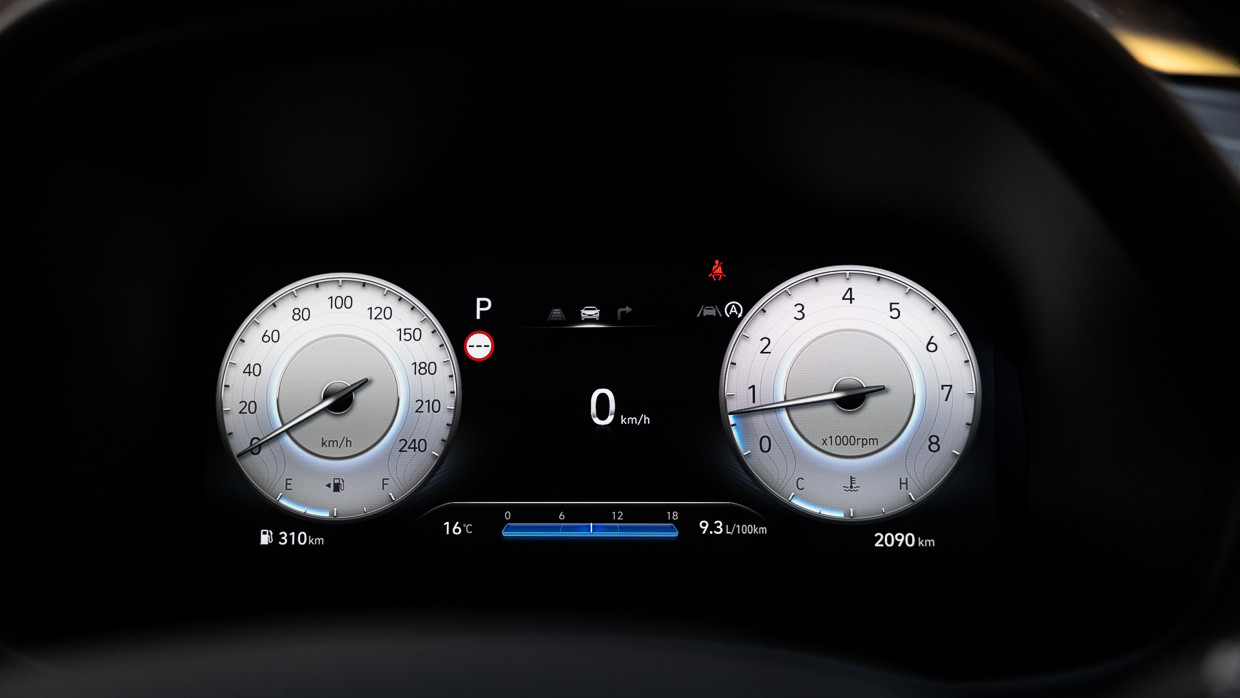
Hyundai’s new-vehicle warranty in Australia is five years/unlimited kilometres, combined with paint coverage for three years/100,000km.
For a now eight-year-old car, the PD Hyundai i30 hatch should be showing more crow’s feet than it does.
But after yet another round of well-considered styling and materials updates, the i30 hatch is looking arguably fitter than ever – in particular, this handsome MY25 N-Line with its interesting array of new colours, finishes and equipment.
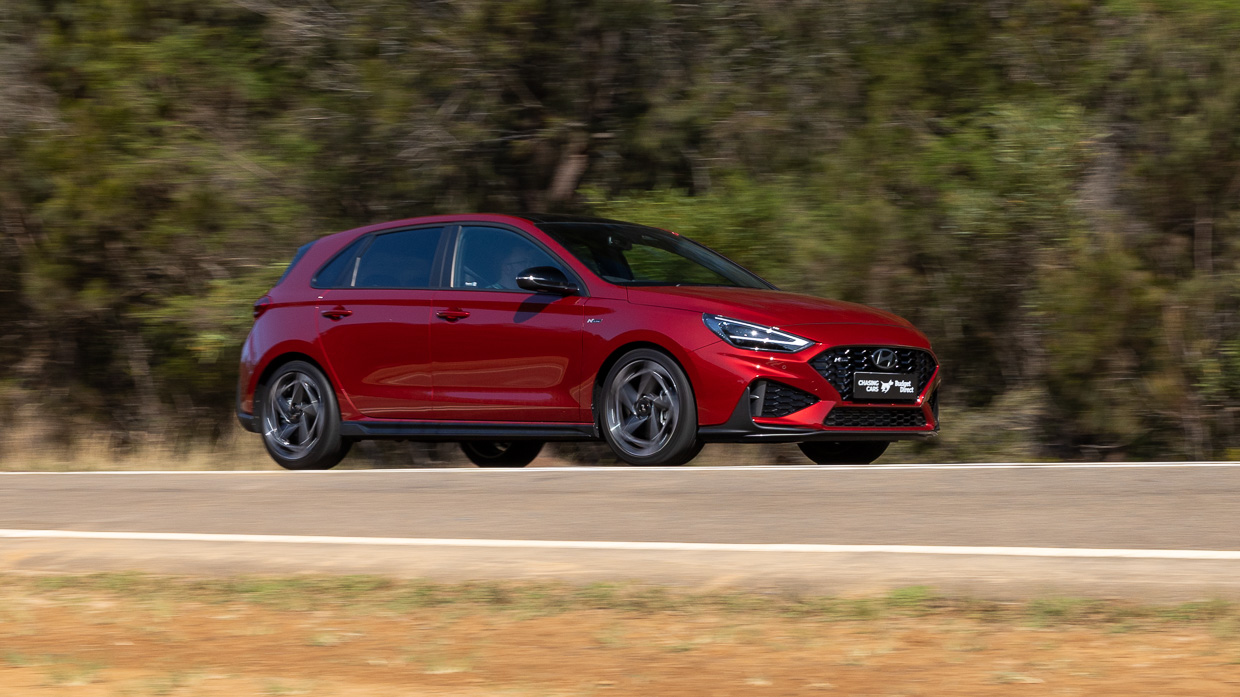
The European 1.5-litre turbocharged mild-hybrid four-pot may not quite have the grunt to support the N-Line’s concrete status as a proper warm hatch, though it’s damn close.
Yet given the ease of its driveability and the reward of its efficiency (compared to the drivetrains it replaces), it’s difficult not to agree with Hyundai’s direction for this N-Line approaching the latter half of the 2020s.
What you get is an honest, effortlessly likeable, fine-looking and great-handling hatch that may no longer be the bargain-basement buy from Hyundai’s past.
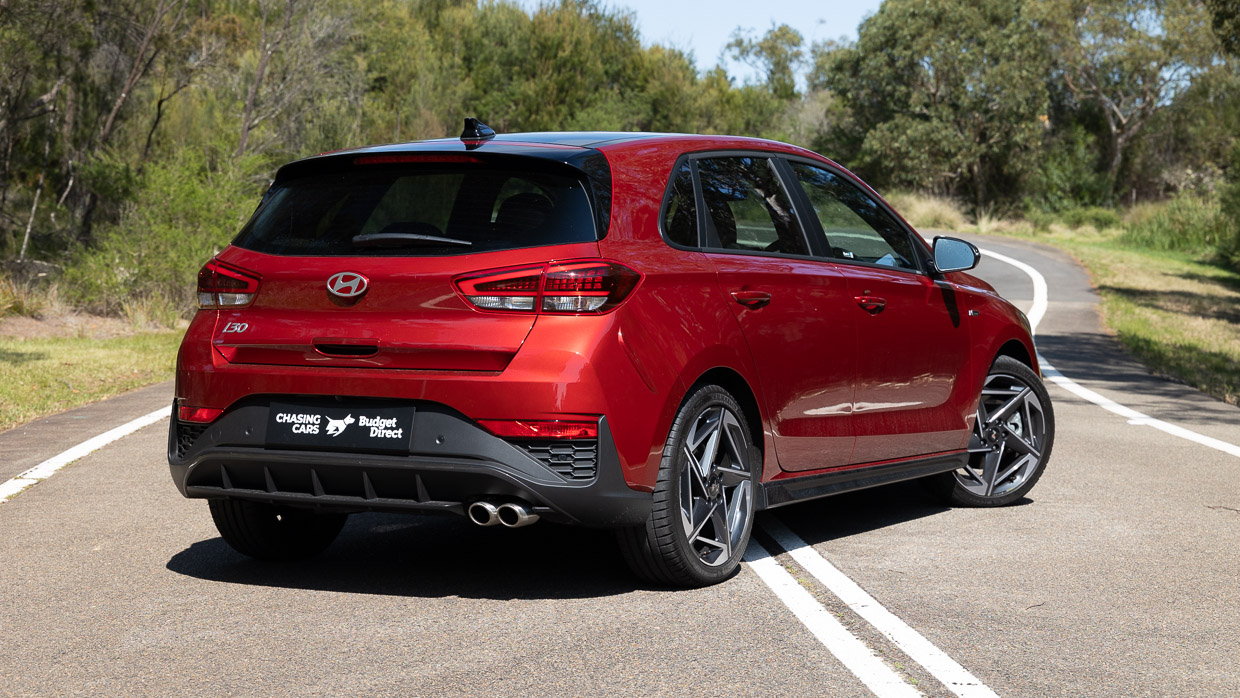
It also easily offers enough all-round sizzle to support its status as a sub-N alternative, for significantly less cash. In the areas that count, the MY25 i30 N-Line hatch is a terrific antidote to Australia’s obsession with SUVs.
Key specs (as tested)
About Chasing cars
Chasing Cars reviews are 100% independent.
Because we are powered by Budget Direct Insurance, we don’t receive advertising or sales revenue from car manufacturers.
We’re truly independent – giving you Australia’s best car reviews.
The estimate provided does not take into account your personal circumstances but is intended to give a general indication of the cost of insurance, in order to obtain a complete quote, please visit www.budgetdirect.com.au. Estimate includes 15%^ online discount.
^Conditions Apply
Budget Direct Insurance arranged by Auto & General Services Pty Ltd ACN 003 617 909(AGS) AFSL 241 411, for and on behalf of the insurer, Auto & General Insurance Company Limited(ABN 42 111 586 353, AFSL 285 571).Because we don’t know your financial needs, we can’t advise you if this insurance will suit you. You should consider your needs and the Product Disclosure Statement before making a decision to buy insurance. Terms and conditions apply.
Indicative quote based on assumptions including postcode , 40 year old male with no offences, licence suspensions or claims in the last 5 years, a NCD Rating 1 and no younger drivers listed. White car, driven up to 10,000kms a year, unfinanced, with no modifications, factory options and/or non-standard accessories, private use only and garaged at night.
^Online Discounts Terms & Conditions
1. Discounts apply to the premium paid for a new Budget Direct Gold Comprehensive Car Insurance, Third Party Property Only or Third Party Property, Fire & Theft Insurance policy initiated online on or after 29 March 2017. Discounts do not apply to optional Roadside Assistance.
2. Discounts do not apply to any renewal offer of insurance.
3. Discounts only apply to the insurance portion of the premium. Discounts are applied before government charges, taxes, levies and fees, including instalment processing fees (as applicable). The full extent of discounts may therefore be impacted.
4. We reserve the right to change the offer without notice.